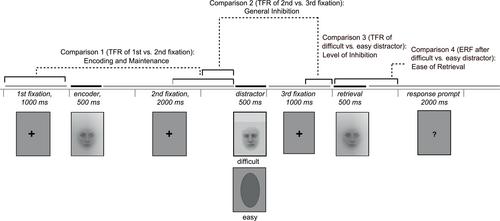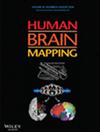During aging the inter-individual variability in both the neural and behavioral functions is likely to be emphasized. Decreased competence particularly in working memory and general executive control compromises many aspects of the quality of life also within the nonclinical population. We aimed, first, to clarify the brain basis of visual working memory and inhibition during multi-stage natural-like task performance, and second, to identify associations between variation in task-related neural activity and relevant cognitive skills, namely inhibition and general working memory capacity. We recorded, using magnetoencephalography (MEG), the neural modulations associated with encoding, maintenance, and retrieval, as well as interference suppression during a visual working memory task in older adults. We quantified the neural correlates of these cognitive processes through two complementary approaches: evoked responses and oscillatory activity. Neural activity during memory retrieval and interference suppression were correlated with behavioral measures of task switching and general executive functions. Our results show that general inhibitory control induced frontocentral neural modulation across a broad range of frequencies whereas domain-specific inhibition was limited to right posterior areas. Our findings also suggest that modulations particularly in phase-locked evoked neural activity can be reliably associated with explicit measures of cognitive skills, with better inhibitory control linked with an early neural effect of distractor inhibition during retrieval. In general, we show that exploiting the inherent inter-individual variability in neural measures and behavioral markers of cognition in aging populations can help establish reliable links between specific brain functions and their behavioral manifestations.



